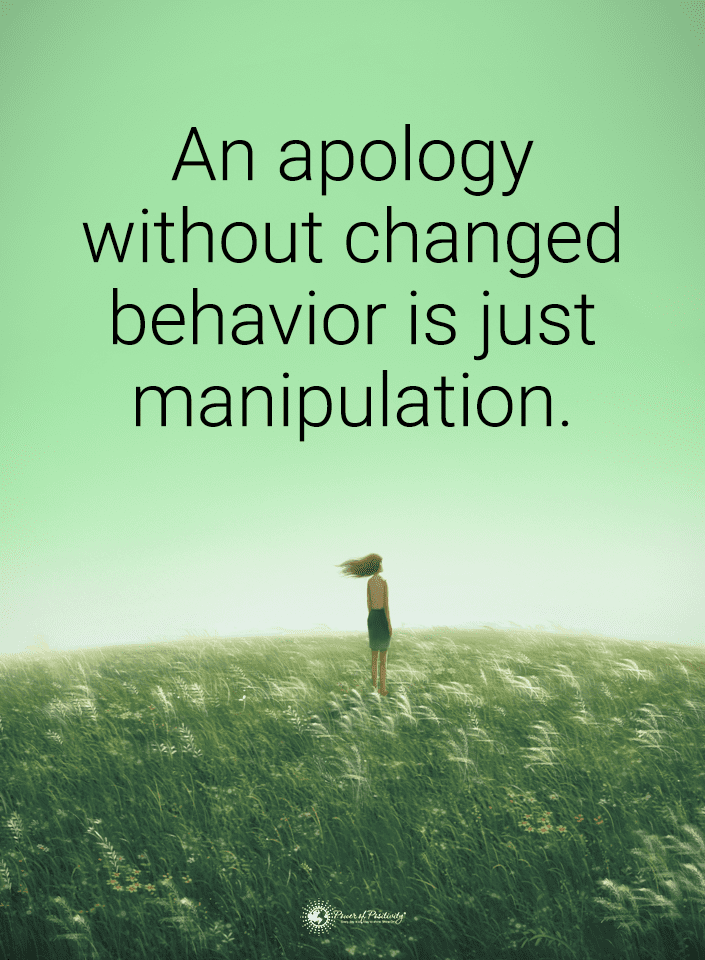Here are some outcomes when a mother abandons her son.
In the quiet corners of many adult men’s hearts lies a void. This unspoken pain traces back to the days of their youth. It’s the shadow of mothers abandoning them as children. This profound loss leaves an indelible mark on a son.
While maternal abandonment often conjures images of deserted playgrounds and empty cribs, its repercussions echo far louder in the behaviors and emotions of grown men.
This article sheds light on the intricate tapestry of feelings, reactions, and coping mechanisms that sons, abandoned by their mothers, weave into their adult lives. By understanding these behaviors, we pave the way for empathy, healing, and a deeper connection with those who bear this silent burden.
Join us on this journey of discovery as we explore the profound impact of a mother’s absence on her son and its ripple effects on his relationships and self-awareness.
Understanding Maternal Abandonment
Maternal abandonment or emotional neglect is a term synonymous with pain and confusion. It signifies a mother’s absence – physically, emotionally, or both.
This loss of a bond isn’t always intentional. Circumstances like illness, addiction, or personal struggles sometimes pull a mother away.
In other cases, the reasons remain shrouded in mystery. Regardless of the cause, the void left behind is palpable. For a young son, this absence becomes a silent teacher. It molds his perceptions, shapes his emotions, and influences his reactions.
As he grows, these early lessons intertwine with his adult behaviors. They become the lens through which he views love, trust, and self-worth. In the following sections, we’ll unravel these behaviors. Together, we’ll navigate the intricate maze of emotions and responses that define sons abandoned by their mothers.
12 Behaviors of Adult Sons Whose Mothers Abandoned Them

1 – Overcompensation in Relationships
The weight of maternal abandonment often manifests in a son’s relationships as a need to overcompensate. This overcompensation isn’t merely about showering a partner with gifts or attention. Instead, it’s a deeper attempt to prove one’s worthiness. They feel guilt for not being enough or at fault for the abandonment.
At the heart of this behavior lies a haunting question: “Am I enough?”
This question, born from the void of a mother’s absence, drives the son to go above and beyond in his relationships. He might become the partner who always says yes to everything- even at the cost of his own needs. He might also become a friend always available, even when stretched thin.
While these gestures may seem endearing, they stem from a fear of rejection by others. It’s a cycle of seeking validation, hoping each act of kindness will cement a place in someone’s life.
2 – Sons Whose Mother Abandoned Them Have Difficulty Trusting Others
Trust, a cornerstone of any relationship, becomes challenging for the son abandoned by a mother. The early experience of abandonment sows seeds of doubt. As a result, it’s difficult for them to trust others fully.
It’s as if a protective wall has been built around their hearts, guarding them from potential pain. This wall may serve as a shield. But it also becomes a barrier. It keeps them from forming deep, meaningful connections. Every gesture of affection, every promise made, is met with skepticism.
This son may constantly fear that history might repeat itself. – that those they hold dear might one day walk away. This internal struggle often leads to a push-pull dynamic in relationships. That’s because they yearn for closeness yet fear it simultaneously. It’s a delicate balance that requires understanding and patience from both sides.
3 – Seeking Approval Constantly
With maternal abandonment, the quest for validation becomes a recurring theme in the life of a son.
It isn’t merely about seeking compliments or accolades. It’s a more profound yearning to fill the maternal void. That’s because they long to hear the affirmations that were once missing. Every achievement, every milestone, promises to unlock the approval they crave.
In social settings, they become the people-pleasers. They’ll mold themselves to fit into any group or situation. They might be the overachievers at work, tirelessly pushing themselves to gain recognition. Beneath these actions lies the underlying need to feel appreciated and valued. The pursuit continues until they recognize its roots and address the underlying pain.
4 – These Sons Suppress Their Emotions
Emotions, especially vulnerability, become a complex landscape for sons who’ve experienced abandonment. They have a palpable fear of showing weakness. That’s because they think vulnerability might make them susceptible to further pain.
As a result, they often wear a mask of stoicism, presenting a facade of strength even when turmoil rages within. This suppression isn’t limited to negative emotions like sadness or anger. Past traumas can even mute joy and affection. Over time, this emotional restraint can lead to internal conflicts, affecting mental well-being and the quality of relationships.
Therefore, they must find safe spaces in therapy or trusted relationships where they can freely express and process their emotions.
5 – Sons Have Over-attachment or Detachment
The pendulum of maternal abandonment often swings sons between two emotional extremes: over-attachment and detachment. On one end, there’s the overwhelming desire to cling, to hold onto relationships with an intensity that can sometimes be smothering.
This over-attachment stems from the fear of reliving the pain of being left behind. On the opposite end is detachment, a self-imposed distance from others as a defense mechanism. They believe they can shield themselves from potential heartbreaks by keeping people at arm’s length.
This duality can confuse both the individual and those around him. It’s a dance between wanting to be enveloped in love and the need to protect oneself from its potential pitfalls.
6 – Low Self-esteem
The absence of a mother’s nurturing touch and affirmations can leave a lasting dent in a son’s self-worth. Doubts about their value and capabilities become constant companions.
Questions like “Why wasn’t I enough to make her stay?” or “What did I do wrong?” can plague their minds. These questions follow them into adulthood.
These internalized beliefs manifest in various ways. They might shy away from opportunities, believing they’re not deserving. Or they might constantly seek validation, hoping to quell the nagging feeling of inadequacy.
Overcoming this deep-seated low self-esteem requires conscious effort, self-reflection, and, often, external support. Recognizing the source of these feelings is the first step toward rebuilding a healthy sense of self-worth.

7 – These Sons May Fear Commitment
The shadows of maternal abandonment can cast long, lingering doubts on a son’s ability to commit. The idea of bonding with someone becomes a source of anxiety. This fear isn’t just about romantic relationships. It extends to friendships, work partnerships, and even personal goals.
The underlying apprehension is that getting too close or invested might open the doors to pain again. Past traumas whisper warnings, suggesting commitment might lead to another loss or rejection.
As a result, they might find themselves hopping from one relationship to another, avoiding the depth that comes with time and trust. Or they might resist setting down roots in a job or a community. Understanding and addressing this fear is crucial for them to experience the joys of deep, fulfilling connections.
8 – Overachieving Tendencies
In the quest to fill the void left by abandonment, some sons channel their energies into relentless achievement. It becomes more than just ambition. Instead, it’s a drive to succeed at all costs, to prove to themselves and the world that they are worthy.
This overachievement can manifest in academics, careers, sports, or other areas. On the surface, this is a positive trait. Indeed, it can lead to notable accomplishments.
However, the underlying motivation is often to mask the pain, to distract from the emptiness. They hope each milestone will be the balm that soothes the ache of abandonment. Recognizing the difference between healthy ambition and overcompensation is vital for their well-being and genuine fulfillment.
9 – Seeking Maternal Figures in Relationships
An unconscious desire often drives sons abandoned by their mothers to seek out maternal figures in their relationships. That isn’t limited to romantic partnerships; it can manifest in friendships, mentorships, or professional dynamics.
They might gravitate towards individuals who exude nurturing, protective qualities. That’s because they hope to find the comfort and security they missed in childhood. While such relationships can offer solace, they also come with pitfalls. There’s the risk of becoming overly dependent, of placing the weight of unmet childhood needs on another’s shoulders.
Therefore, both parties must recognize this dynamic and ensure the relationship remains balanced, healthy, and mutually beneficial.
10 – These Sons Often Avoid Conflict
For many sons who’ve experienced the trauma of a mother’s abandonment, conflict represents the threat of further loss. They might perceive disagreements or confrontations as precursors to abandonment, leading them to avoid conflicts at all costs.
This avoidance can manifest in various ways. They might suppress their needs and opinions to appease others. Additionally, they could withdraw from situations where conflict might arise.
While this might maintain surface-level harmony, it often comes at the cost of genuine communication and understanding. Over time, unaddressed issues worsen, leading to resentment or emotional distance. They must learn that healthy conflict can strengthen bonds, and disagreements don’t necessarily lead to rejection or abandonment.
11 – Hyper-sensitivity to Criticism
The sting of maternal abandonment can heighten a son’s sensitivity to criticism. What might seem like constructive feedback to others can feel like a deeply personal attack on him.
The heightened sensitivity stems from the internalized belief that something might be inherently wrong with them. In fact, they secretly believe that’s what led to their mother’s departure.
As a result, every critique, no matter how minor, can reinforce this damaging self-view. These sons might become defensive, withdrawn, or overly self-critical in response. Navigating personal and professional feedback becomes a tightrope where they constantly fear not measuring up.
Understanding this sensitivity and approaching feedback with empathy and clarity can make a world of difference for those around them.
12 – Abandoned Sons May Have a Reluctance to Seek Help
Carrying the weight of abandonment, many sons develop a belief in handling their problems alone. A mix of pride and fear is at play: pride in their resilience and fear that revealing their vulnerabilities might lead to further rejection. This reluctance can extend to various areas of their lives. For instance, they refuse assistance in daily tasks or avoid professional help for emotional challenges.
Over time, this isolation can compound their struggles, making them feel even more lonely. Recognizing the strength in seeking support is pivotal to healing and growth. It’s a reminder that they don’t have to bear their burdens solo, and a world of understanding and assistance awaits exploration.
The Role of Therapy and Counseling
Navigating the complexities of maternal abandonment is no easy feat. Personal resilience and support from loved ones are significant. But professional guidance can be the key to lasting healing.
Therapy and counseling offer a safe space for sons to unpack their feelings, understand their behaviors, and chart a path toward healing. Therapists, equipped with the tools and expertise, can help them:
- Address the deep-seated pain
- Reframe negative beliefs
- Grieve the loss of mothers who abandoned them
- Build healthier relational patterns.
Besides individual counseling, group therapy can connect them with others who’ve walked similar paths. It fosters a sense of community and shared understanding.
Final Thoughts on the Behaviors Sons Abandoned by Their Mothers May Display
Valleys and peaks, shadows and light mark the journey of a son abandoned by his mother. While the pain of abandonment leaves an indelible mark, it’s not the end of the story. With understanding, support, and professional guidance, healing is not just possible; it’s within reach. As we conclude our exploration, remember that every individual’s journey is unique.
Yet, the universal truth remains. With empathy, love, and the right tools, the silent burden of abandonment can become strength, resilience, and hope. For all the sons carrying this weight, know you are not alone, and a brighter future can be yours.
The post 12 Adult Behaviors of Sons Abandoned by Their Mothers appeared first on Power of Positivity: Positive Thinking & Attitude.



